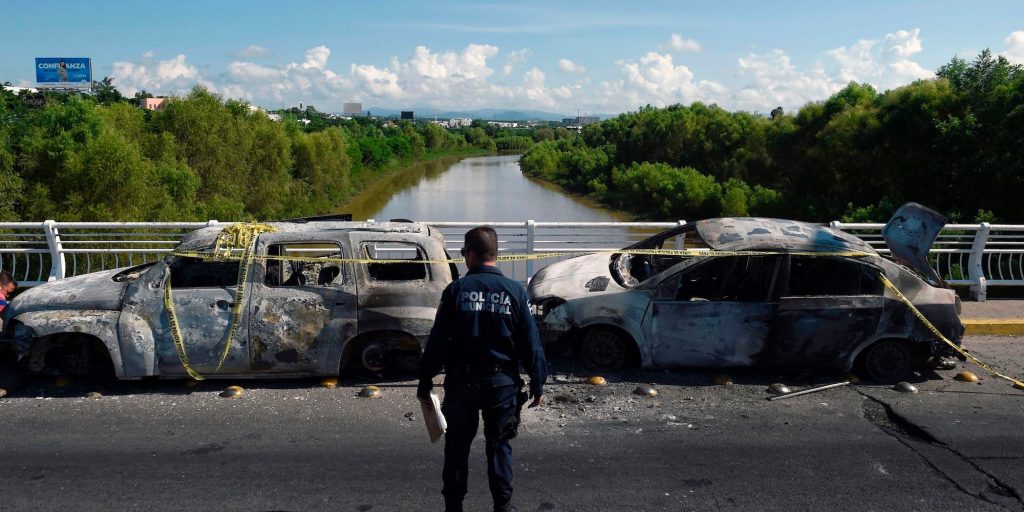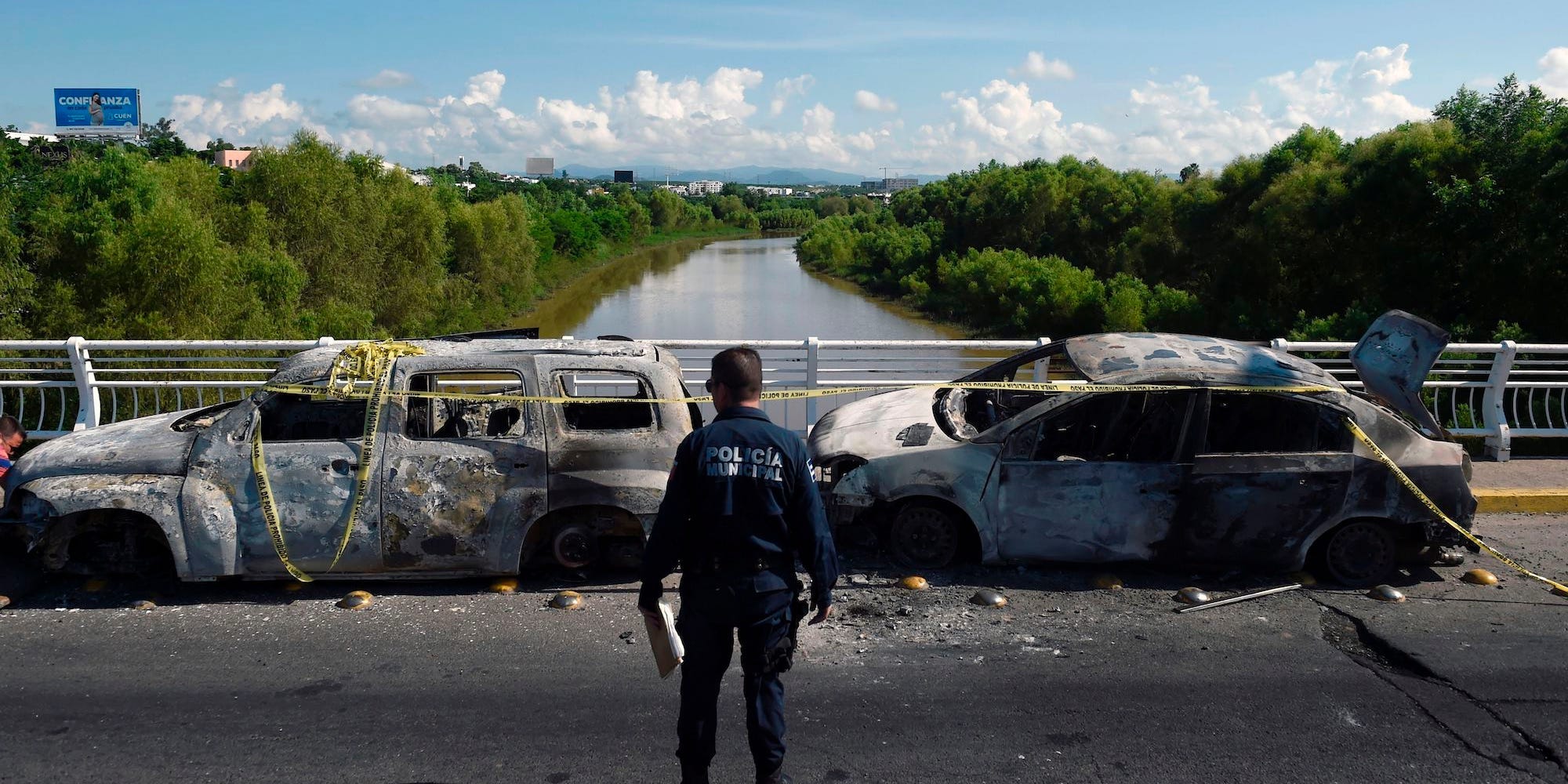
ALFREDO ESTRELLA/AFP via Getty Images
- Sinaloa cartel chief Joaquin "El Chapo" Guzmán was captured for the final time in January 2016.
- Guzmán is now serving a life sentence in a US prison, but the Sinaloa cartel appears to be thriving.
- "US authorities used El Chapo's case to justify their presence in Mexico, but [his arrest] doesn't solve a thing," one expert said.
- See more stories on Insider's business page.
MEXICO – It's been five years since Joaquin "El Chapo" Guzmán was arrested for the last time. He's been in a US "supermax" prison since 2017, serving a life sentence after being found guilty of all 10 federal charges he faced.
But according to official US data, security analysts, and some of his own lawyers, business has never been better for his cartel.
At the time, US authorities said Guzmán's arrest was "a significant victory and a milestone" in combating violence and drug trafficking. Richard Donoghue, former US attorney for the Eastern District of New York, said Guzmán would never again "pour poison into our country or make millions as innocent lives are lost."
While El Chapo has been portrayed as a guiding force for the infamous Sinaloa Cartel, his organization and other criminal groups don't seem to miss him.
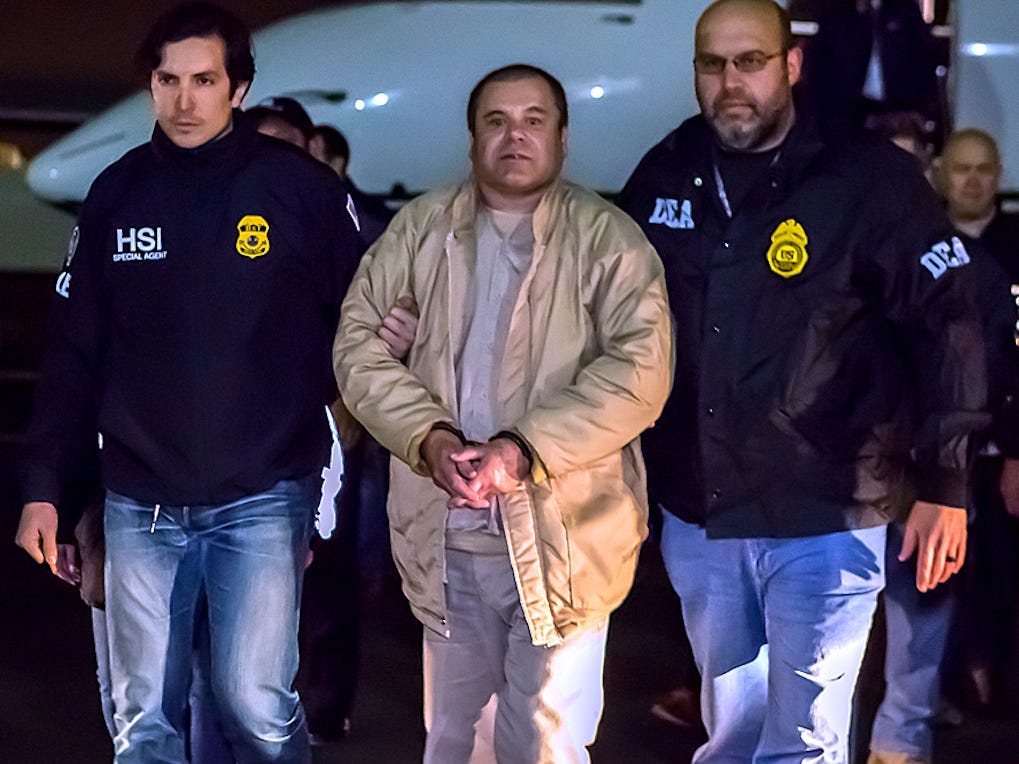
Ted Psahos/ICE via Getty Images
According to official US figures, since Guzmán's arrest the influx of drugs into the US and the violence in Mexico have never been worse.
In the 2016 fiscal year, during much of which El Chapo was behind bars in Mexico, cocaine busts at the border totaled more than 5,000 pounds. In 2017 - when he was extradited to the US - that spiked to more than 9,000 pounds, according figures released by US Border Patrol.
Cocaine seizures in the US also jumped from more than 52,000 pounds in 2016 to more than 62,000 pounds the following year. In 2020, 58,006 pounds of cocaine were seized in the US. The total for 2021, as of April, is 62,324 pounds. (US government fiscal years run from October 1 to September 30.)
In 2015, with Guzmán still at large, 29,000 pounds of meth were recovered in the US. Five years later, with El Chapo locked up, seizures inside the US jumped to 117,600 pounds.
So if El Chapo is locked up for 23 hours a day in a 7-foot-by-12-food soundproof cell but drug busts are at an all-time high, what exactly was the point in arresting him?
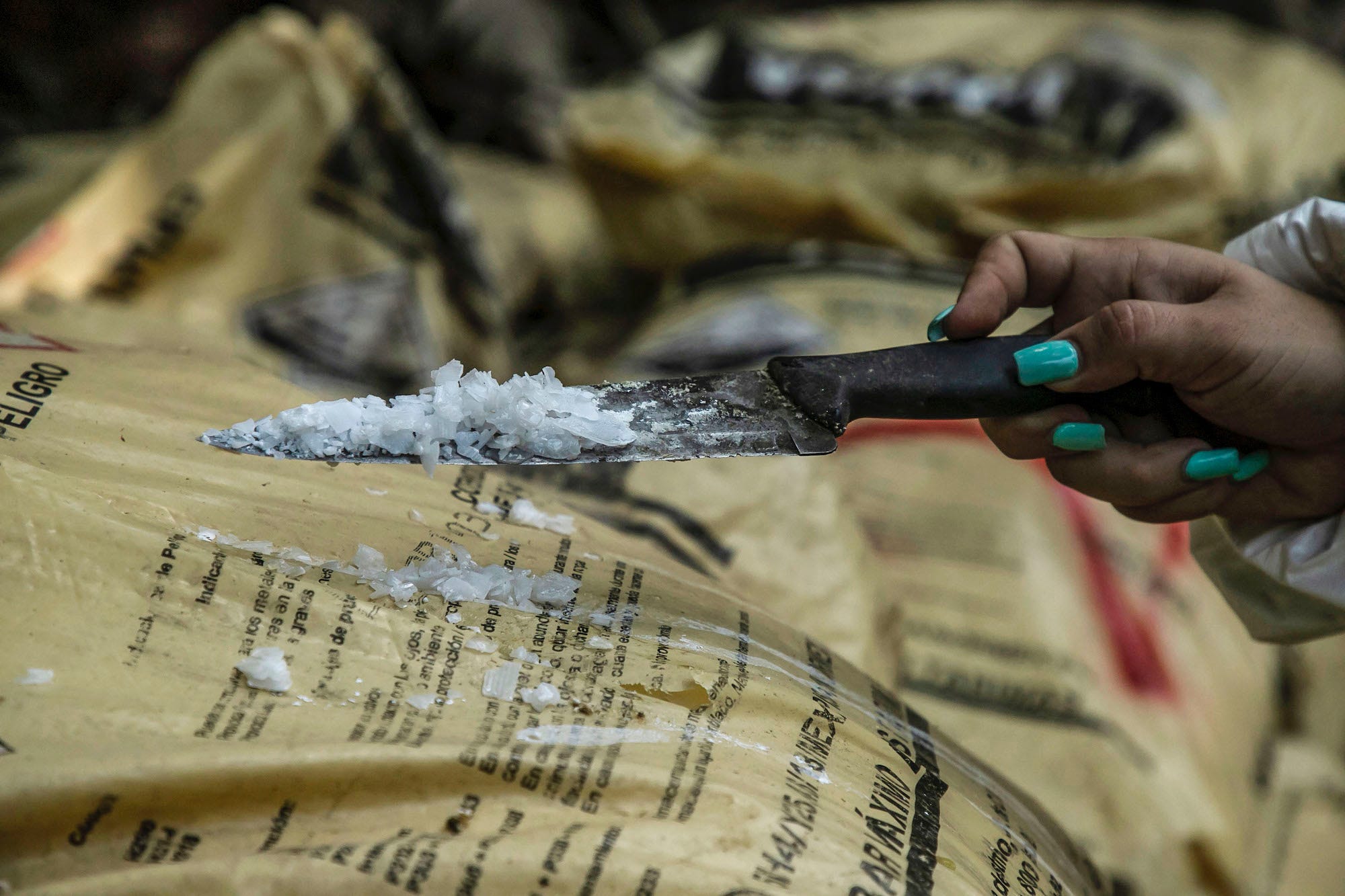
RASHIDE FRIAS/AFP via Getty Images
Falko Ernst, senior analyst in Mexico for the International Crisis Group, said seeing the arrest or killing of cartel leaders like Guzmán as a blow to those cartels is misleading and leads to bad policies.
"Keeping the US kingpin strategy has incredibly harmed Latin America but especially Mexico. El Chapo's arrest is an illusion that relies in believing you can behead a criminal organization and diminish their operations," he said.
Guzmán's arrest has also failed to reduce bloodshed in Mexico. Homicides there have steadily risen in recent years, jumping from about 10,000 a year in 2014 to 15,000 in 2017.
In 2020, there were almost 20,000 homicides, the highest annual total in Mexican history, according to Mexico's National Institute of Statistics and Geography (INEGI), which found that firearms were used in more than 80% of all homicides.
"US authorities used El Chapo's case to justify their presence in Mexico, but [his arrest] doesn't solve a thing," Ernst said.
Criminal organizations in Mexico have proliferated, from 20 in 2000 to more than 200 in 2021, according to a recent report by Lantia Consultores, a Mexico consulting firm researching organized crime.
That growth is due in large part to the fragmentation of larger cartels after their leaders have been capture or killed.
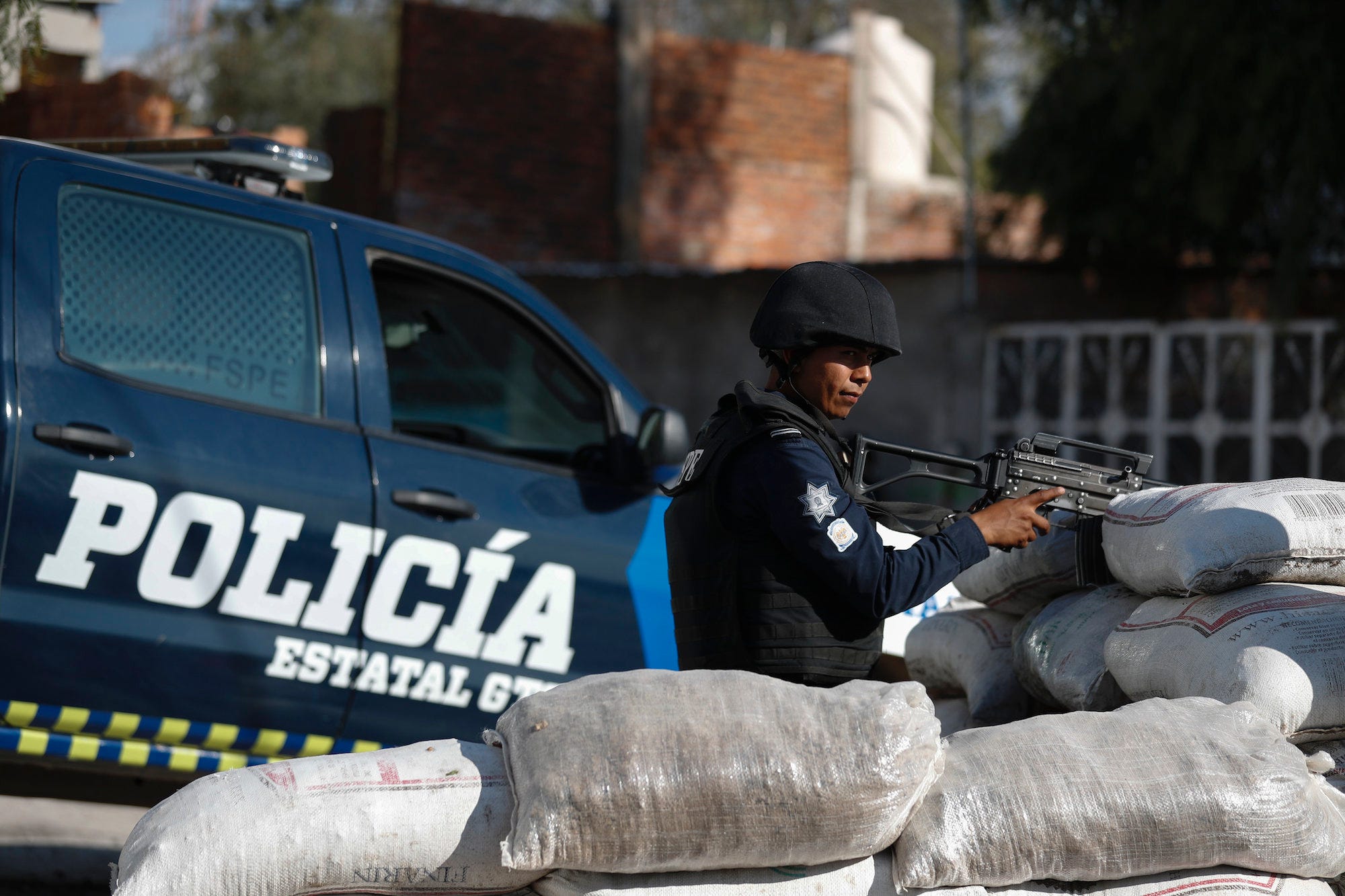
AP Photo/Rebecca Blackwell
Michael Schneider, one of Guzmán's lawyers in the US, chuckled when asked why the drug business is booming even with El Chapo in jail.
"The case of Guzmán in Mexico was relevant to me because he was not properly represented. Politics were very much linked to his case. It was basically all politics," he said.
The Sinaloa cartel is believed to operate more like a confederation of factions rather than with a hierarchical structure, and while US government evidence presented at his trial described Guzmán as its leader, Schneider dismissed that, echoing the argument made during the trial that Guzmán was just another lieutenant.
"I don't believe Mr. Guzmán is a mafia don, a leader of a criminal organization," he told Insider.
Schneider said Guzmán "couldn't be the leader of a global crime syndicate" since it is "extremely hard for someone like Guzmán, uneducated, to run such an enterprise."
"If you believe the Sinaloa Cartel is a cartel, you have a lot to learn. There is a lot that people describe as more organized than it actually is," Schneider said.
Analysts and cartel operatives have also pushed back against the idea that cartels are centralized organizations, with orders flowing from top leaders down to lower-ranking members.
"Cartels today are not structured [like] a hierarchy organization, but more like a decentralized network," Alejandro Hope, a security analyst in Mexico and former official with Mexico's civilian intelligence agency, CISEN, told Insider in a previous interview.
El Chapo's wife, former beauty queen Emma Coronel, could have been a node in that decentralized structure.
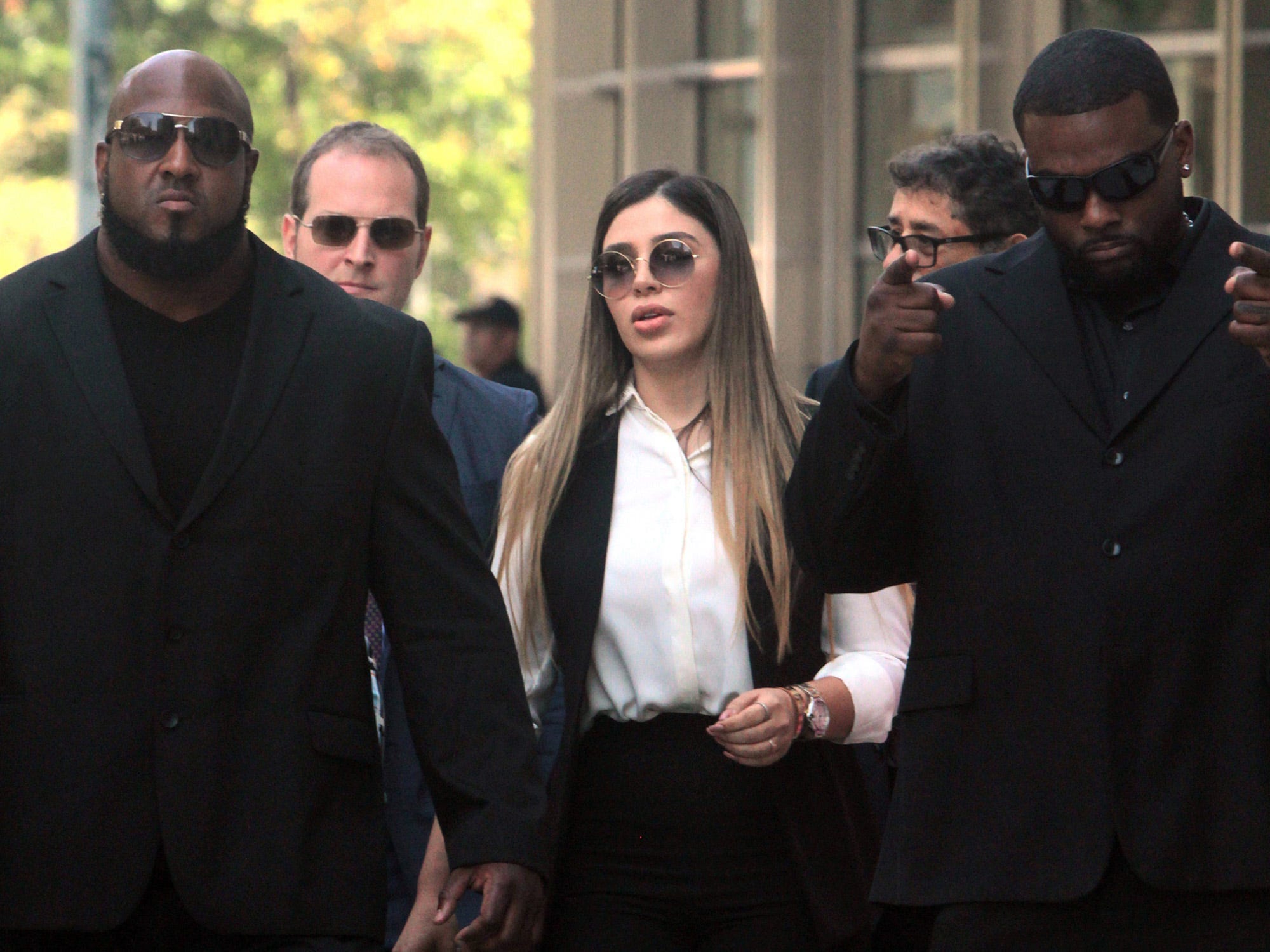
Jesse Ward/New York Daily News/Tribune News Service via Getty Images
Coronel, 31, was arrested in the US in February and accused of working with Guzmán to run the cartel and of helping him escape from Mexico's Altiplano prison through a mile-long tunnel in July 2015. Coronel pleaded guilty to drug-trafficking charges on June 10.
But to gauge the cartel's future, Schneider pointed back to Mexico, where Guzmán's sons and the cartel leader considered his peer, Ismael "El Mayo" Zambada, remain free.
"You have to ask why all eyes are on Guzmán and his wife, Emma, while Mayo is walking around Mexico freely, and no one is profiling him," he said.
Zambada has never been arrested - he is believed to have used his influence and Sinaloa state's rugged mountains to avoid capture - though several of his sons have been jailed.
The US Department of State is currently offering a reward of up to $5 million for the elder Zambada, who is rumored to be in poor health.
For now, El Mayo remains at large, but if captured, his case would likely be a rerun of El Chapo's, while the same drugs keep flowing north with a new name stamped on each kilo.
